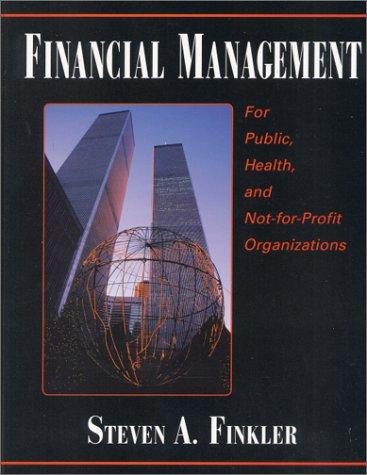Question
1. One of your Taiwanese suppliers has bid on a new line of molded plastic parts that is currently being assembled at your plant. The
1. One of your Taiwanese suppliers has bid on a new line of molded plastic parts that is currently being assembled at your plant. The supplier has bid $0.10 per part, given a forecast you provided of 200,000 parts in year 1; 300,000 in year 2; and 500,000 in year 3. Shipping and handling of parts from the suppliers factory is estimated at $0.01 per unit. Additional inventory handling charges should amount to $0.005 per unit. Finally, administrative costs are estimated at $20 per month.
Although your plant is able to continue producing the part, the plant would need to invest in another molding machine, which would cost $10,000. Direct materials can be purchased for $0.05 per unit. Direct labor is estimated at $0.03 per unit for wages plus a 50 percent surcharge for benefits and, indirect labor is estimated at $0.011 per unit plus 50 percent benefits. Up-front engineering and design costs will amount to $30,000. Finally, management has insisted that overhead be allocated if the parts are made in-house at a rate of 100 percent of direct labor wage costs. The firm uses a cost of capital of 15 percent per year.
a. Calculate the difference in NPVs between the Make and Buy options. Express all costs as positive values in your calculations. It is suggested to use the NPV function in Excel. (Round your answer to 2 decimal places.)
Difference in NPV $
Step by Step Solution
There are 3 Steps involved in it
Step: 1

Get Instant Access to Expert-Tailored Solutions
See step-by-step solutions with expert insights and AI powered tools for academic success
Step: 2

Step: 3

Ace Your Homework with AI
Get the answers you need in no time with our AI-driven, step-by-step assistance
Get Started


